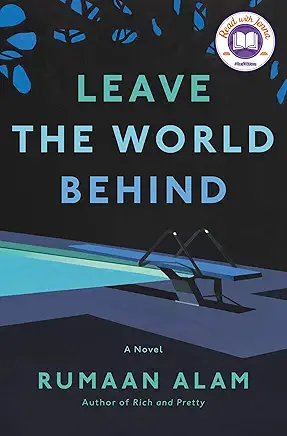
“This settles it, though. Something is . . . happening.” The lack of a cellular signal was an assault. The absence of television was a tactic. “We have to do something!”
Amanda and Clay and their two teenaged children, who live in Brooklyn, NY, rent an Airbnb in a secluded area of the Hamptons on Long Island. In setting the stage for the characters’ mindsets, the author immediately points out Amanda’s intolerance for a Korean American woman’s accent. Clay is a tenured English and Media Studies professor at City College who aspires to write book reviews for The New York Times but doesn’t want to put too much time into them. Their family represents thy myth of a typical middle-class white lifestyle—comfortable, striving for status, and oblivious to others. They enjoy one day of the luxurious vacation house and its many amenities. Then the couple who owns the house, G.H. and Ruth Washington, interrupt their family time and insist that they also need to stay in the house since there is a blackout affecting New York City, and this is the only place where they can feel safe.
Amanda and Clay are surprised that the homeowners are Black, and there are racist thoughts and comments included in the text of the story. The story includes the themes of bias, prejudice, entitlement, and racism. But, it includes more than that. It is a fairly absurd tale of an undefined disaster and how it affects the characters. It made me wonder about victimhood and the average person’s ability to cope with the unexpected. By extension, the reader is forced to examine modern reliance on cell phones, television, GPS, media, and so-called basics such as electricity.
When cellphone signals disappear along with television and GPS, Clay, the male “head of the household,” is literally lost. He cannot figure out how to get to a local store or obtain information about what has caused the loss of technological services. Amanda drinks excessively and obsesses over the lack of information provided by her beloved cellphone. Their children, Rose and Archie, are not sure how to function without television and cell phones. Rose and Archie decide to explore the woods behind the house and seemingly do what old-fashioned children might have done before being continually connected to screens.
G.H. (George) is flustered by his inability to check the stock market and keep track of money, which is also his profession. He has stocked his house with many provisions since he had always been aware of potential doom. He seems genuinely interested in befriending the family who has rented his house. He wants to remunerate them for the interruption in their vacation, but it becomes apparent that his money cannot buy friends or trust. We also learn that G. H.’s educational and economic status is greater than that of his white renters. G. H. has a degree from Harvard Business School, and his wife, Ruth went to Barnard, then Teacher’s College. Of course, they have achieved prestige; they own the expensive home, and the white family is renting it. The author provides so much to think about related to preconceived notions of status and class. We are left wondering about power balances in relationships and which characters and members of society are clueless.
G.H. and Ruth are old enough to be the parents of Amanda and Clay, yet there is little regard for their life experience and socioeconomic level. All of the main characters hear a loud noise that is clearly related to the undefined disaster, but each perceives it differently. As the story progresses, it turns out that Amanda and Clay need more support, and Rose and Archie need more parenting. Nobody is well prepared to provide the intangibles needed without access to the worldly items they have learned to rely upon. Ruth’s focus on orderliness comes in handy for some elements of the crisis, but other character attributes prove useless. Although some of the conversations and statements make little sense, the writing is super engaging. The helplessness, discomfort, and awkward coping mechanisms are palpable throughout the novel, and the author demonstrates that perhaps no one is truly prepared to leave the world behind.


